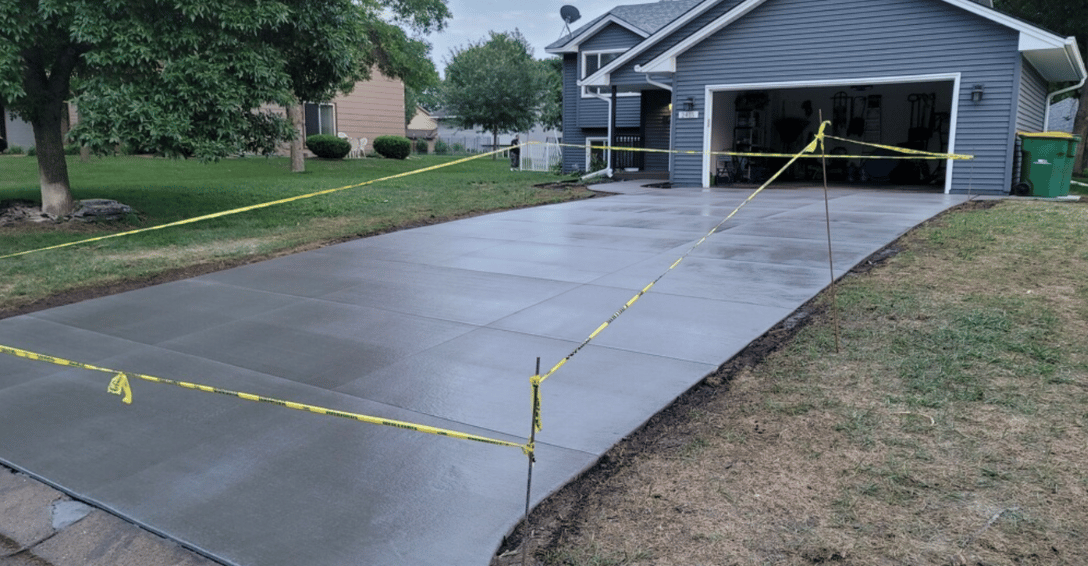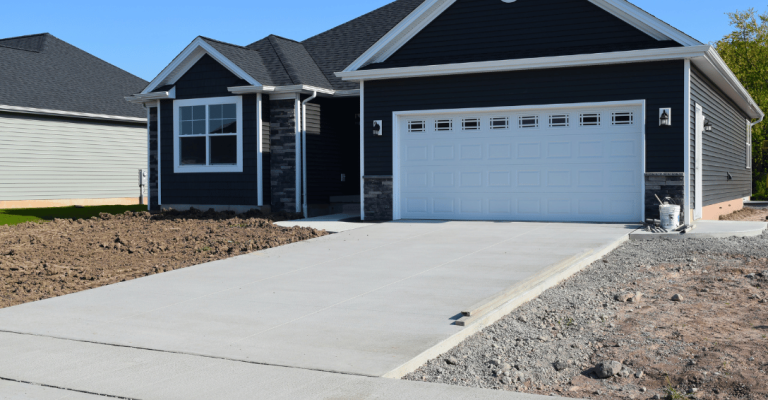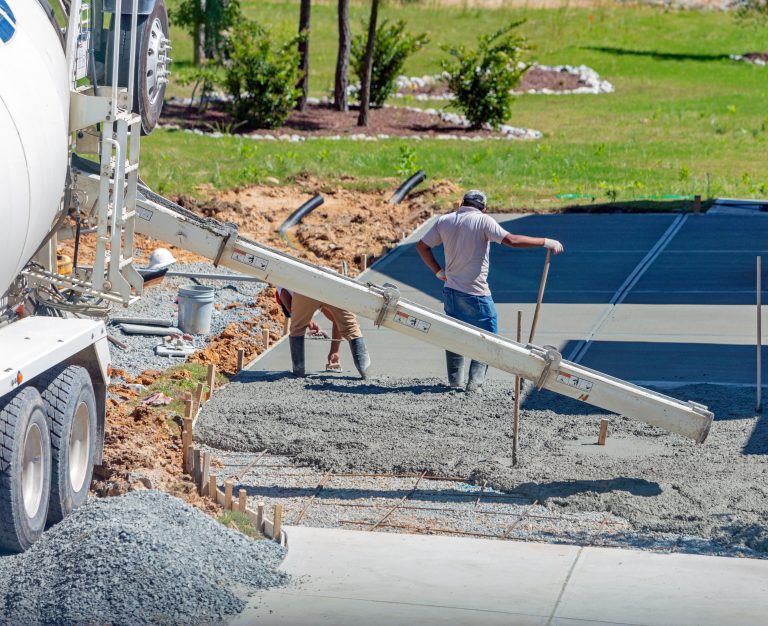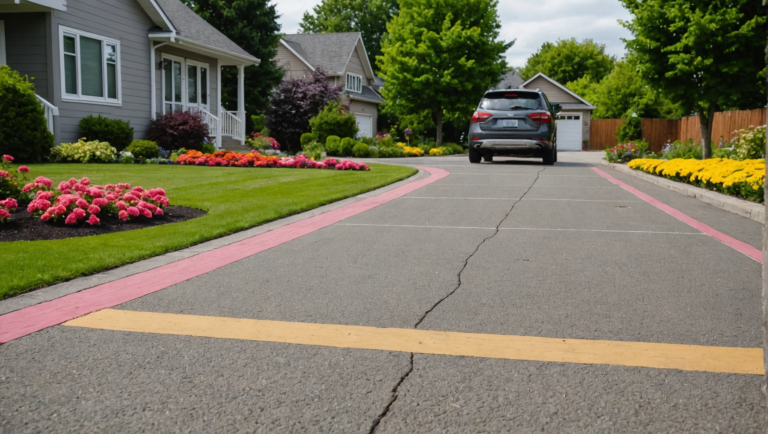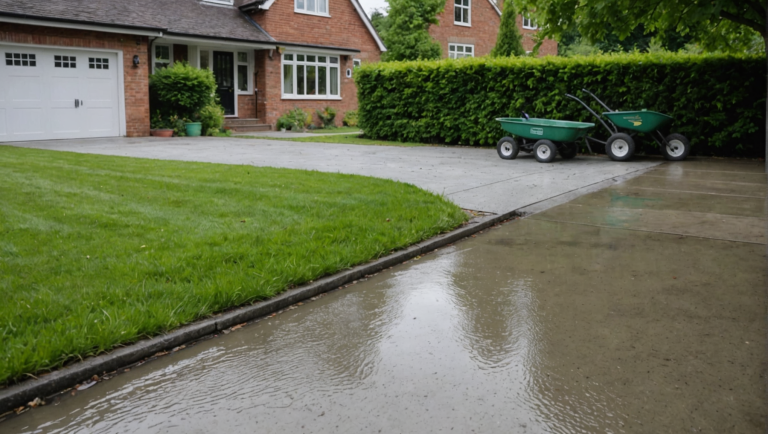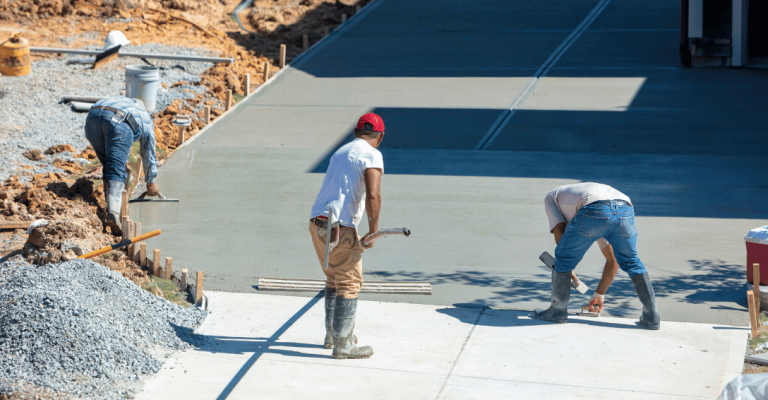Sealing and Waterproofing Concrete Driveways Boosts Durability and Aesthetics
The practice of sealing and waterproofing concrete driveways offers a significant advantage in both aesthetics and durability. Sealers and protective coatings safeguard the driveway against potential damage from water infiltration, freeze-thaw cycles, and chemical exposure, all while maintaining its visual appeal. Beyond its practical benefits, this maintenance also contributes to the property’s overall aesthetic value, with a range of finishes available to complement any exterior design. Yet, the question remains: how can homeowners effectively implement these measures to maximize their driveway’s lifespan and aesthetic value?
Understanding Concrete Driveway Damage
A significant proportion of concrete driveway damage can be attributed to the insidious effects of water infiltration, freeze-thaw cycles, and chemical exposure, all of which erode the structural integrity and aesthetic appeal of the material over time. These factors, collectively referred to as ‘weathering,’ cause an extensive array of issues, ranging from minor surface spalling to severe cracking that compromises the overall structural stability.
Water infiltration, accelerated by cracks and fissures in the concrete, leads to the deterioration of its internal structure. This process is further exacerbated by freeze-thaw cycles, where the expansion and contraction of water within the concrete create internal pressure, resulting in cracking and flaking. Chemical exposure, particularly to deicing salts and vehicle fluids, erodes the surface and further weakens the structure.
Understanding these factors is essential for preventative care and timely intervention. It allows homeowners to assess the condition of their driveways accurately and take the necessary steps to prolong their lifespan, maintain their aesthetic appeal, and safeguard their structural integrity.
It is, thus, vital to comprehend the origins and progression of concrete driveway damage, as it forms the basis of any effective maintenance plan.
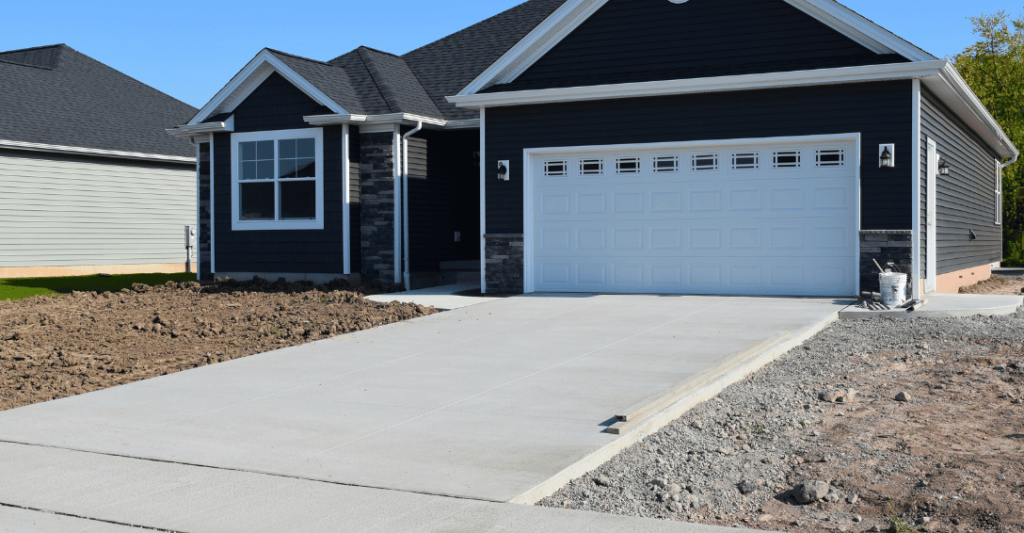
Importance of Driveway Sealing
Given the potential damage caused by weathering, sealing your concrete driveway emerges as a crucial maintenance measure, offering a robust defense against water infiltration, freeze-thaw cycles, and chemical exposure. The application of a high-quality sealer forms a protective layer on the concrete surface, effectively impeding the ingress of moisture and deleterious chemicals. It also minimizes the risk of surface scaling and disintegration, thereby enhancing the longevity and aesthetic appeal of your driveway.
The importance of driveway sealing extends beyond mere physical protection. It plays a significant role in preserving the structural integrity of the concrete, reducing the need for extensive repairs or replacement over time. This not only saves substantial costs but also contributes to environmental sustainability by curtailing the wastage of materials and energy.
Moreover, a well-sealed driveway provides an improved surface finish, adding to the overall curb appeal of your property. It can withstand harsh weather conditions, traffic wear, and staining, maintaining its pristine appearance for years.
Essentially, driveway sealing is an investment that pays off in the form of enhanced durability, aesthetics, and value of your property, thereby fostering a sense of pride and belonging.
Basics of Waterproofing Concrete Driveways
Delving into the specifics of waterproofing concrete driveways, it’s important to first understand that the process requires both meticulous preparation and the application of suitable waterproofing products to achieve an effective barrier against moisture penetration. This procedure is paramount in enhancing the structural integrity and lifespan of your driveway, as water is a primary cause of concrete deterioration.
The waterproofing process leverages the use of specific sealers and coatings tailored for concrete surfaces. These products form a protective layer on the surface of the concrete, thereby preventing water and other potentially damaging materials from penetrating into the concrete.
The type of waterproofing product selected depends largely on the specific conditions and requirements of the driveway. For instance, silicate-based concrete sealers, which penetrate into the concrete to provide protection, are an excellent choice for driveways with minimal exposure to freezing and thawing cycles. On the other hand, acrylic-resin based sealers, forming a protective layer on the surface, are ideal for driveways with heavy traffic and exposure to harsh weather conditions.
Steps for Effective Driveway Maintenance
Having explored the specifics of waterproofing concrete driveways, it is equally important to discuss the necessary steps for effective driveway maintenance to guarantee the longevity of the protective layer.
The first step in maintaining a concrete driveway is regular cleaning. This involves sweeping away debris and power washing to remove stubborn stains and grime, which can cause wear and tear over time.
Sealing is the second step, typically performed every 2-3 years. A quality sealer not only enhances the look of the concrete but also protects it from water, grease stains, and UV damage. Hence, regular re-sealing is a must for driveways in regions with harsh weather patterns.
The third step is addressing minor damage promptly. Small cracks can turn into larger issues if left unattended. Seal these immediately with a suitable concrete repair product to prevent water penetration and further deterioration.
Lastly, controlling the load on the driveway is essential. Despite concrete’s strength, heavy vehicles like trucks or RVs can cause premature cracking.
Boosting Aesthetics With Driveway Care
Beyond practical considerations, meticulous driveway care can greatly enhance the aesthetic appeal of your property, thereby boosting its overall value. A well-maintained driveway, sealed and waterproofed, can harmonize with the overall external design of your property, thereby creating a visually pleasing and welcoming ambiance.
Regular sealing and waterproofing preserves the concrete’s innate color and texture, preventing the onset of unsightly discoloration, cracks, and stains caused by weathering, automotive fluids, and tire marks. This not only improves the driveway’s visual semblance but also enhances its durability.
Moreover, the use of high-quality sealers and waterproofing agents can provide a glossy or matte finish that adds to the driveway’s visual appeal. These finishes can also be customized to match your property’s exterior design and color scheme, creating a cohesive and appealing visual aesthetic.
To further elevate the driveway’s aesthetics, consider incorporating decorative elements such as pattern stamps, color stains, or inlays. These elements can inject a unique touch, making your driveway not just a functional space but also a significant contributor to your property’s aesthetics.
Indeed, meticulous driveway care is not just about enhancing functionality; it’s also a strategic approach to boosting your property’s aesthetics and overall value.
Frequently Asked Questions
What Is the Average Cost of Sealing and Waterproofing a Concrete Driveway?
The average cost for sealing and waterproofing a concrete driveway varies greatly based on factors such as size and condition, generally ranging from $0.25 to $0.50 per square foot for a thorough, professional service.
How Often Does a Concrete Driveway Need to Be Re-Sealed and Waterproofed?
Concrete driveways usually need re-sealing and waterproofing every 2-3 years. However, frequency may vary depending on local weather conditions and usage. Regular maintenance guarantees longevity, visual attractiveness, and peak performance of the driveway.
Can I Apply a Sealer or Waterproofing Material to My Concrete Driveway by Myself?
Yes, homeowners can certainly apply sealer or waterproofing material to their concrete driveways independently. However, for best results, it’s important to follow the manufacturer’s instructions regarding application technique and drying time meticulously.
What Are the Potential Environmental Impacts of Driveway Sealants and Waterproofing Materials?
Driveway sealants and waterproofing materials may have environmental impacts including potential water pollution due to runoff, air pollution from volatile organic compounds (VOCs), and indirect harm to wildlife through contamination of their habitats.
How Long Does a Sealed and Waterproofed Concrete Driveway Last Compared to an Untreated One?
A sealed and waterproofed concrete driveway outlasts an untreated one by a considerable margin, often by 25-30 years. The sealing process prevents weather-related damage, enhancing durability, while waterproofing inhibits moisture penetration, preserving the driveway’s aesthetic appeal.

